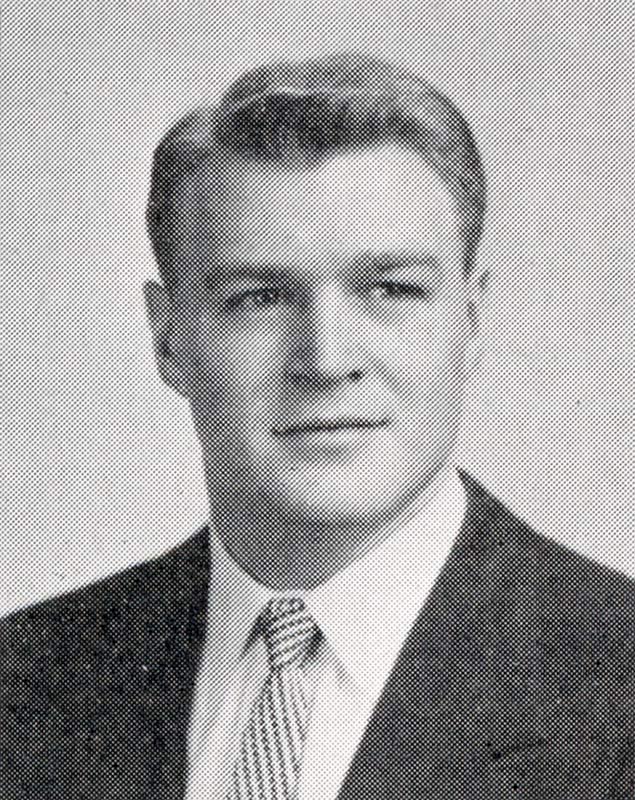His life's work
Chuck Noll had a childhood dream. When he was 17, he saw it destroyed. Then he came to Dayton.
Noll's Dayton years are part of the story told by Michael MacCambridge in his book Chuck Noll: His Life's Work. MacCambridge's journey to writing the book about the coach who moved the Pittsburgh Steelers franchise from laughingstock to Super Bowl legend took some time. In researching his award-winning America's Game: The Epic Story of How Pro Football Captured a Nation, he had interviewed Dan Rooney, Steelers executive and son of the franchise's founder, Art Rooney.
A few months after the book was published in 2004, "I received a handwritten note from Rooney saying that it was a good book but didn't have enough about the Steelers," MacCambridge while visiting the University of Dayton in October for a book signing.
 In doing another book some years later, MacCambridge again interviewed Rooney, who was nearing 80 and had added to his achievements being the first U.S. ambassador to Ireland to visit all of the island's 32 counties. After a while, he heard back from Rooney, by then Steelers chairman emeritus, his son Art II now heading the franchise.
In doing another book some years later, MacCambridge again interviewed Rooney, who was nearing 80 and had added to his achievements being the first U.S. ambassador to Ireland to visit all of the island's 32 counties. After a while, he heard back from Rooney, by then Steelers chairman emeritus, his son Art II now heading the franchise.
Rooney wanted him to do a book on Chuck Noll.
"I was interested," MacCambridge said, "but I told him it can't be just about Noll being a good football coach."
"You look into it," Rooney said. "You'll see."
So MacCambridge talked to men who played with and for Noll. He talked to Noll's family. He saw.
Three years, 300 interviews and a lot of writing later, the book on Noll has been published by the University of Pittsburgh Press. It is about a successful football coach. No other coach has won four Super Bowls while losing none. But it is also about a successful man.
Noll's perspectives were broader than football. During his life he became a photographer, a wine connoisseur, an airplane pilot. If something interested him, he wanted to become an expert on it. "He may have been," MacCambridge said, "the last Renaissance man."
Noll loved his wife, Marianne, and their son, Chris. And he loved his nieces and nephews. His sister, Rita, and her husband, Clarence, had seven children under the age of 10 when Clarence died suddenly. Noll became a source of financial help and more. Noll kept his family life private; he neither sought the spotlight nor enjoyed it. But MacCambridge noted that, as he was researching the book, the nieces and nephews were very clear to him about their uncle's love and help and their gratitude to him.
One remembers struggling with algebra. He took her aside and quietly went over it with her. "From that day on," she said, "math was my best subject."
The intelligence, the skills, the attitude that Noll brought to everything in life, he brought to football. And he changed the game.
"His big contribution," MacCambridge said, "was reducing the game to its components. Football was then, in terms of coaches, a cult of personality, of willpower, of overblown rhetoric, ‘give 110 — no, 120 percent.'"
Noll considered it the player's job to motivate himself. What Noll as a coach did, MacCambridge said, was to teach players "what to do, how to do it and why they should do it."
After graduating from the University, Noll played for Paul Brown in Cleveland for six years. Brown was a coach who stayed on message. One message his players heard repeatedly was that "this is just what you're doing now. You have to think of what your life's work will be."
Part of that advice had to do with economic necessity. Pro football didn't pay much in those days. As a player, Noll did consider what his life's work could be. He sold insurance. He sold trucking services. He did substitute teaching. He studied law a bit. He thought about medicine.
He didn't like any of it much.
"I had a horrible, horrible fear of him ending up selling time on a truck line forever," MacCambridge quotes Marianne as saying. "And I wanted him to have a passion."
In 1959, Noll got a call from his old roommate, Jim Currin '53, who told him that former UD assistant coach Joe Quinn '42 and others thought he would be a good candidate for Dayton's head coaching job. After interviewing in Dayton, he returned home to Cleveland and Marianne waiting with dinner and wine. He explained he knew he wasn't going to get the job.
"But I do know one thing now," he said. "This is what I really want to do. I really want to coach."